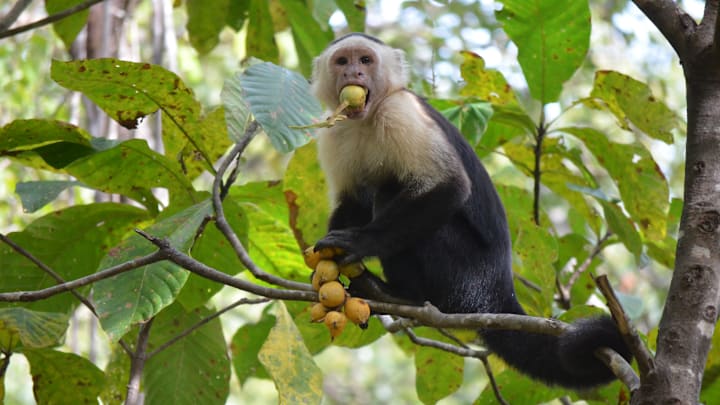In April 2024, animal control officers in Watertown, Connecticut, discovered two black vultures in bad shape. The befuddled birds struggled to stand and seemed to waver in and of consciousness. At a wildlife rehabilitation center, veterinarians tested them for various diseases and conditions and came to a diagnosis: These birds were hammered.
The vultures had “g[ot] themselves into something that was fermented enough to cause severe intoxication,” according a Facebook post by the center, A Place Called Hope, which noted that fruit left in open dumpsters might ferment and cause a lost weekend for scavengers. After the classic hangover remedy of rest, breakfast, and rehydrating, the birds flew off and rejoined their colony.
Vultures aren’t the only animals susceptible to getting sloshed. Tipsy grizzly bears are hazards to trains in Western states. Waxwings, a songbird that chows down on berries with the potential to ferment, are known to sometimes drunkenly fly into windows. In 2011 in Sweden, a moose discovered with its torso stuck between the branches of a tree was found to be inebriated from fermented apples.
With the anecdotal evidence showing animals sometimes get lit, a group of researchers from British, Canadian, and U.S. institutions tackled the subject in a new study published in the journal Trends in Ecology & Evolution.
“Evidence is growing that humans are not ‘drinking alone,’” they state, “and that many animals ingest ethanol in their natural environment.”
Nature’s Habitual Drinkers
Ethanol is the chemical name for the alcohol type that causes intoxication and, as noted, there are plentiful examples of drunk animals from funny news stories. The paper’s authors, though, are more interested in nature’s habitual drinkers. Certain beetles invade supplies of beer and slurp it down. Vinegar flies prefer to deposit larvae in fermenting fruits. Invasive green monkeys on St. Kitts have been known to swipe alcoholic fruit cocktails from tourists.

Some species that regularly feed on fruits don’t avoid the ones turning into JELL-O shots. Spider monkeys eat the fermented fruits of yellow mombin trees, chimpanzees ingest fermented palm fruit, and the pentailed treeshrews of Southeast Asia imbibe the fermented nectar of the bertam palm.
In food preference experiments, two species of lemur—aye-ayes and slow lorises—were given alcoholic and non-alcoholic sucrose drinks. The animals were able to differentiate between the spiked and virgin cocktails and demonstrated a preference for the booze. (That 2016 study was done at Duke University, which tasked a grad student to be a lemur bartender.)
Four Theories for Animals’ Alcohol Preferences
This leads to a question for the researchers: Why would some animal species consume, and even show preference for, alcohol, a potentially toxic substance stemming from corrupted yeast, especially given the lack of Budweiser commercials or high school peer pressure in the animal kingdom?
The authors lay out four possible reasons. One, the consumption is incidental. Two, the greater sugar and caloric content in alcohol gives the animals a burst of energy and stimulates their nutrition-seeking instincts. Three, evolutionary trial and error has taught the animal that alcohol has medicinal value, perhaps from the antioxidants it contains or because fermented fruits offer nectar-sipping insects’ larvae some protection from parasites.
Four, it just feels good. “Ethanol can trigger the endorphin (and dopamine) system, which creates feelings of relaxation and calmness. This could result in increased playfulness, explorative behaviours, sociality, and the formation of friendships, with ultimate benefits for survival and reproduction,” the researchers write.
Hey, we’ve all been there.
Read More Fascinating Facts About Animals:
